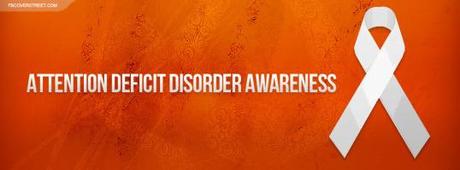
Learning you have been diagnosed with ADD can be very hard as a child or as an adult.
Let’s look at the diagnosis from the child’s perspective. My son was diagnosed with Attention Deficit Disorder as a young child. We worked with the school, but he still always felt “less than” the other children. Understand that at the core of these kids with behavior problems or learning disabilities, they’re angry. They’re ashamed of themselves and they feel like they’re damaged goods. And that just makes them feel more hopeless, which triggers more acting-out. Their perspective on their diagnosis is, “There’s something wrong with me.” That’s why they’re always making excuses, blaming others, and saying, “It’s not me, it’s them.” In this way, they defend themselves from the feelings of shame and anger. They see that the other kids can meet their responsibilities and they know they can’t—or won’t. They have a big denial mechanism that neutralizes those thoughts, and many of them end up walking around in their own little self-centered world, acting out and becoming more and more destructive. It’s normal to feel overwhelmed, scared, or even angry if you’ve been diagnosed with ADD/ADHD. Unfortunately accepting is the hardest part. You have to come to terms with it on your own which makes parents feel helpless when it comes to helping their child…Counseling can help. Talking about feelings and learning ways to deal with them often makes things easier.

Coping Tips for ADD/ADHD
When necessary, ask the teacher or boss to repeat instructions rather than guess. Don’t be afraid to write things down as you’re listening, or take notes.
Break large assignments or job tasks into small, simple tasks. Set a deadline for each task and reward yourself as you complete each one.
Each day, make a list of what you need to do. Plan the best order for doing each task. Then make a schedule for doing them. Use a calendar or daily planner to keep yourself on track.
Work in a quiet area. Do one thing at a time. Give yourself short breaks. Reward yourself for achieving small milestones along the way. For instance, “If I get done reading 3 pages in Chapter 8, I’ll take a 5 minute break and grab a cookie.”
Write things you need to remember in a notebook with dividers. Write different kinds of information like assignments, appointments, and phone numbers in different sections. Keep the book with you all of the time.
Post notes to yourself to help remind yourself of things you need to do. Tape notes on the bathroom mirror, on the refrigerator, in your school locker, or dashboard of your car — wherever you’re likely to need the reminder.
Store similar things together. For example, keep all your Xbox or PS3 games in one place, and DVDs or CDs in another. Keep canceled checks in one place, and bills in another. Organize!
Create a routine. Get yourself ready for school or work at the same time, in the same way, every day.
Exercise, eat a balanced diet and get enough sleep.
Remember, coping with ADD/ADHD is something you need to practice on a daily basis, as it takes time to work new skills and behaviors into your daily routine. Be patient with yourself and your progress as you try out these different coping tips.
Organization is key!
These tools can help you organize your work and schedule:
- A software program, like Microsoft Outlook
- A cell-phone calendar
- Laptop pop-up reminders
- A filing system
- A day planner
- A wall calendar
- An online calendar you can sync with other family members
- A command center for schoolwork
- File drawers
- Shelving and bookcases
- Stacking trays
- Drawer organizers




